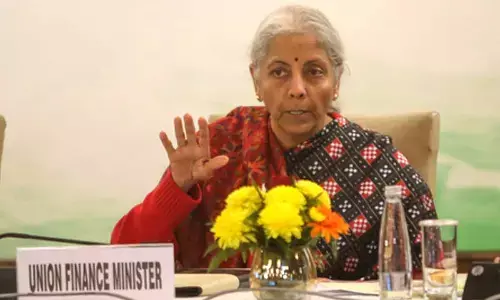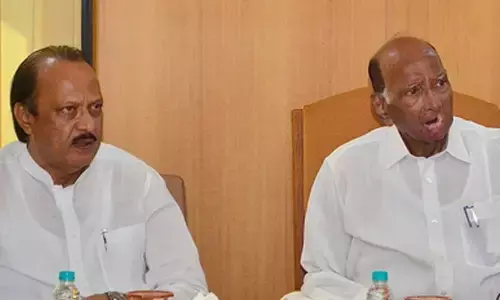Embracing chaos: Moving beyond jaded ideas of stability

Embracing chaos: Moving beyond jaded ideas of stability
Making chaos our empowering companion can lead us to outcomes more glorious than a restricted imagination of stability can envision
"Only a mind free of impediment is capable of grasping the chaotic beauty of the world. This is our greatest asset."
– Oliver Bowden
Stability has thoroughly been culturally celebrated against the lack of it. It has usually signified flourishing, satisfaction and relief and while all of these things are important in life, there is something amiss in the imagination of a stable right. A little guesswork will take us to the issue: life is unpredictable, too massive to be encapsulated by human sensory ability and therefore, the imagination of a straightforward, stable life is somewhere flawed. Furthermore, the whole emphasis on stability makes us forget that a lot of ideas around it can be restrictive and jaded and make us do great injustice to the potential we hold. In light of this, if we pause to ask the question of what do we have if not stability? Chaos? Chaos, indeed.
The reasons for not investing heedlessly in stability are many. Apart from the obvious preponderance of chaos in the world, trying too hard to be stable can send us into states of conservatism and passivity, a condition of overthinking and fear to keep life in one fixed shape. For example, if stability for us is compulsorily staying happily in a certain location with a certain income, bigger, seemingly 'risky' opportunities will be discarded without consideration. Furthermore, such a stability is likely to encounter many problems, such as monotony upon the repetition of the same schedule and lifestyle and disillusionment with the joy it accrues to us. Moreover, this stable life can meet many challenges such as things beyond our control, like an unexpected economic disaster or a personal tragedy and in these cases, because we relied so heavily on stability, the world might come crashing down for us. Chaos, on the other hand, is a reality as indubitable as it gets because opportunities and catastrophes emerge everyday in the realm of human existence.
However, this leads us to another question. If chaos does prevail, then should one not try to be stable? Is it worthless to imagine a life of satisfaction where things are done according to your will? The answer is complex, and requires us to rethink stability from the viewpoint of inevitable chaos, rendering it dynamic. Stability does not have to be imagined as staying constant or in one place all the time. Instead, our ideas of a stable life must acknowledge the element of unpredictability to create enough breathing room for us, so that no aberration feels like failure. Embracing chaos is an exercise in humility and pragmatism, which makes sure we encounter the challenges that come with desiring our own versions of stability.
An illustration of this reflection comes from an episode in India itself. Vickie Elmer, writing for Quartz, remarked about Bob Miglani's book, Embrace the Chaos, which is subtitled "How India Taught Me to Stop Overthinking and Start Living." Elmer writes, "Count on chaos to wear you down until you make it your ally - or at least a comfortable companion in your work and life. That's the message from Bob Miglani […] who has worked at Pfizer for 20 years, has plenty of experience with chaos, much of it from trips […] to India". Elmer notes how Miglani's eureka moment occurred during his way to a conference in Ahmedabad when his car passed through a crowded road with animals. The taxi driver navigated around a cow, then started speeding up just as a tree appeared in the middle of the road. The driver veered around the tree, ignoring the motorcycle near his rear bumper. Miglani, asked the driver about his maneuvers and driver said that on this "crazy road" full of surprises, he had learned that he could only control his own driving. This made Miglani understand the inevitability of chaos and come up with a stability of staying consistently prepared for chaos by fostering a positive attitude towards it.
This is a demonstration of what embracing chaos can accomplish. It can act as prevention against great disappointment and pain, increase courage to take worthy risks, build a tough defense for the troubles in life and make you work towards practical ideas of stability and success. Chuck Palahniuk suitably remarks, "Our real discoveries come from chaos, from going to the place that looks wrong and stupid and foolish" and making chaos our empowering companion can lead us to outcomes more glorious than a restricted imagination of stability can envision.
(The author is Chief Impact
Officer at Recykal Foundation)















